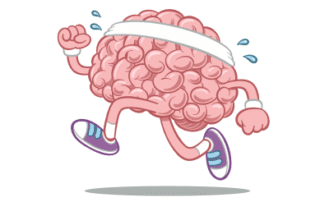Behavioral Insights for Old Age Planning
It’s almost impossible to rationally plan old age, given that decisions in this domain are complex, jointly made and emotional. I argue that behavioral economics can help us understand some of our common decision-making barriers, such as dealing with decision avoidance, reframing old age positively, and designing interventions to better forecast our needs in old age.
Virtual Reality to the Rescue – or Not?
Are VR technologies successful to increase savings? Or should we rely on more subtle simulation techniques? And does it matter whether people imagine positive or negative life events?
Deceiving Yourself to Better Deceive Others
Most people are overconfident in various aspect of their daily life. Yet, this bias has been shown to have detrimental economic and financial consequences. In light of these costs, why is this bias so persistent in the population? Our research provides an explanation for this phenomenon: being overconfident can provide a strategic advantage by influencing others in social interactions.
Does “Irrationality” Travel?
As the enthusiasm for applied behavioural science spreads across the globe, it is time to think how well "irrationality" travels. This is the start of an article series exploring the impact of factors such as cultural context on decision making - and how our understanding of the human mind is based on a thin slice of humanity.
Behavioral Economist, Behave Yourself
Using cognitive mechanisms (commitment, loss aversion, social norms and suchlike), I hacked myself to boost my motivation for exercise and healthy habits, get in shape and lose 15 kilos (33 pounds)… all in a record six months.
Exerting Self-Control ≠ Sacrificing Pleasure
In the typical self-control experiment, participants are given a choice between a hedonic vice-food (e.g., chocolate) and a utilitarian virtue-food (e.g., fruit). Choosing the hedonic vice is interpreted as a self-control failure. We argue that self-control failures are better captured as choices that violate one’s long-term goals and induce regret. Accordingly, the consumption of hedonic food is not necessarily a self-control failure, and self-control does not necessarily entail a trade-off between pleasure and health. Our conceptualization has far-reaching consequences for consumers and policy-makers who try to help consumers exert self-control.







